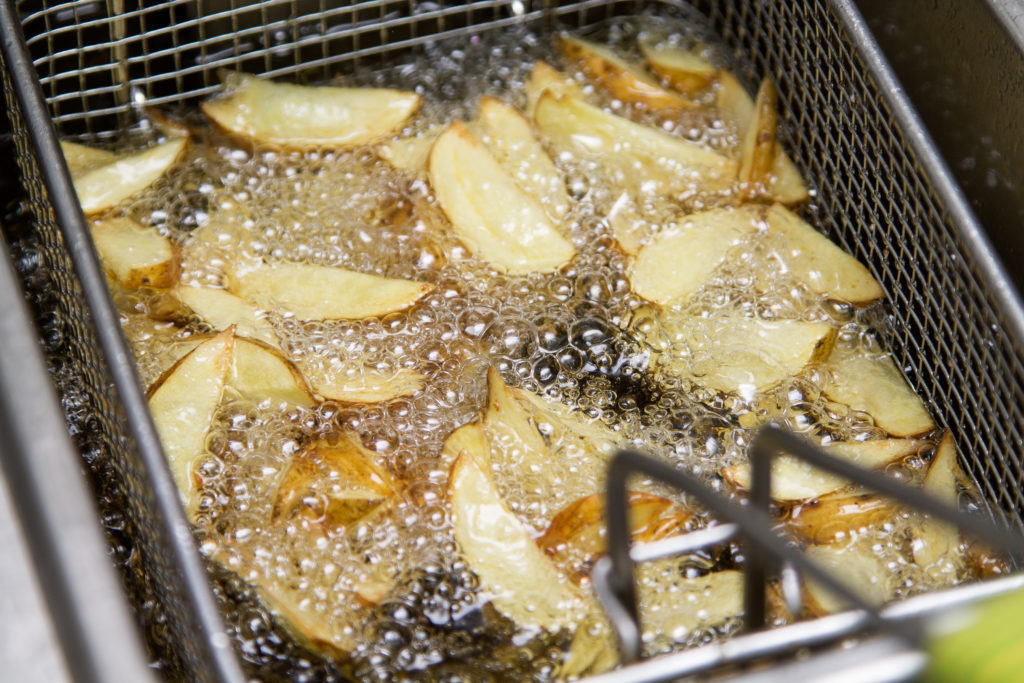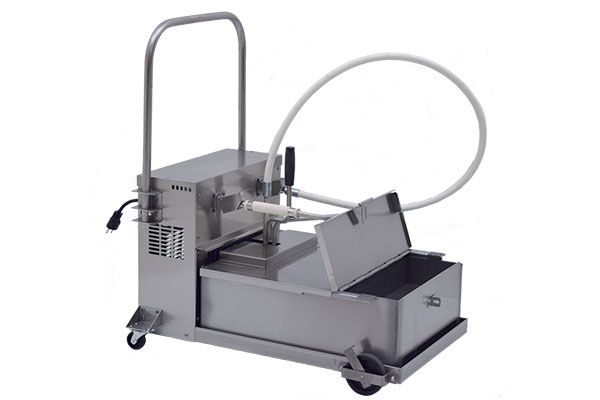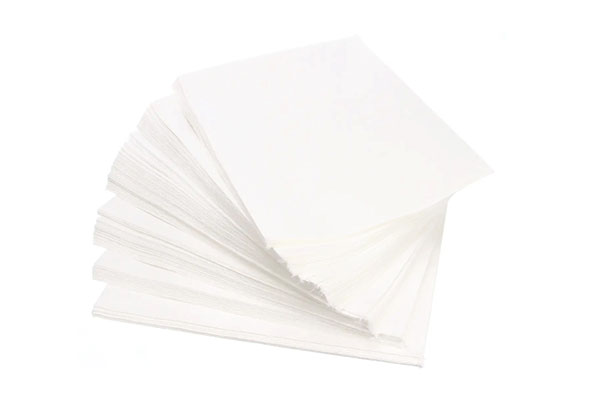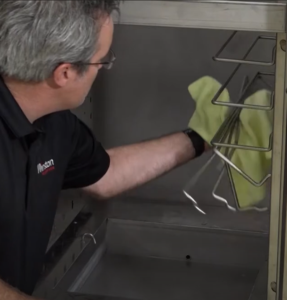Americans love our fried foods. According to some estimates, as much as a third of the U.S. population eats fried food every day. Fried foods are fast, convenient, and dang tasty. What do all fried foods have in common? Oil. The #1 way to keep that oil working for you is to adopt the best practices for oil filtration.

Why is Cooking Oil Filtration So Important
Oil (or shortening) is the muscle behind frying. A highly effective cooking medium, it quickly transfers thermal energy into food. Frying under pressure boosts that speed even further. The core truth of frying is that your food will only be as good as your oil. You could be frying the most amazing products, but if your oil is crappy, your food will be crappy. You’ve got to show your oil some love.
Oil isn’t cheap. It’s one of the most significant operating expenses for some operations. Adopting best practices extends oil life, allowing you to get maximum use out of every drop. Critically, the most effective way to maintain oil is by filtering. Every fryer manufacturer has its own recommended filter procedure. We’re discussing the best practices for Collectramatic® fryers.
What are the Different Types of Cooking Oil?
Filtering takes two forms: passive and active. Both are important.

Passive Oil Filtration
Passive filtering involves passing the oil through a filter medium to remove particulate matter. Winston’s Shortening Filter is designed specifically for use with Collectramatic Fryers. However, you may use our filter with virtually any commercial fryer. It uses paper filter material to passively filter oil. The filtering process is simple. You can view it here.
Active Oil Filtration
Active filtering involves using a chemical powder to polish the oil. It acts like a magnet that attracts and removes food debris and extracts soluble liquid impurities, dissolved flavorants, and odors that spoil fried food. Examples of filter powers are Fryclone and Magnesol. Although active filtering isn’t needed as frequently as passive filtering, it is equally important. Winston recommends polishing the oil at least once each day

Best Practices for Oil Filtration
Filter as Frequently as Needed
Collectramatic fryers have a unique design that reduces the
frequency of filtering. Nonetheless, our fryers need periodic filtering to
maintain high oil quality. How often depends on the fryer’s size. The six-head
fryer needs filtering every 20 rounds (or 360 pounds of chicken). The smaller
four-head fryer needs it every 30 rounds. Or put another way, oil should be
filtered after 120 heads of chicken have been cooked. As mentioned before, we
recommend polishing the oil at least once daily.
Why Bother Filtering?
It’s all a matter of taste or flavor. Anything that negatively affects the flavor of your oil will have a similar effect on the food in the fryer. Filtering removes cracklings, debris, impurities, and other materials that can spoil oil flavor. Without the best practices for oil filtration, this will happen sooner rather than later.
Why Cooking Oil Breaks Down
Let’s briefly explain why oil breaks down. Three common chemical reactions contribute to the breakdown of cooking oil: hydrolysis, oxidation, and polymerization.
Hydrolysis is caused by hydrogen molecules in water reacting with frying oil, giving fried foods an acidic or tainted flavor. Excess moisture, high temperatures, foreign matter, emulsifiers, and the free fatty acids caused by oxidation also contribute to hydrolysis.
Oxidation occurs when oxygen molecules react with long fatty acid chains in the oil and break them up. Heat catalyzes the reaction and accelerates oxidation. Additionally, trace metals, foreign matter, and UV light can cause further oxidation.
Polymerization occurs as oil breaks down. Non-volatile products of oxidation and hydrolysis begin bonding together (polymerizing) at high oil temperatures, forming clumps that accumulate on the oil’s surface. If these particles are large enough, foaming will result, further accelerating the rate of oil breakdown.
You will replace all the oil eventually, but regular filtering and polishing will enable you to maximize its lifecycle. Of course, you always have the option of just dumping your oil and refilling it with fresh oil. But then again, you can pile cash behind your building and light it on fire, too. The results are the same.





